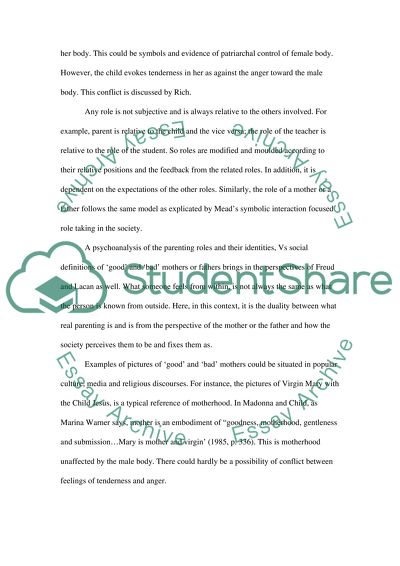Cite this document
(External Definitions of Good and Bad Parents Scholarship Essay, n.d.)
External Definitions of Good and Bad Parents Scholarship Essay. Retrieved from https://studentshare.org/social-science/1557033-how-do-external-definitions-of-good-and-bad-mothers-and-fathers-impact-on-the-actual-experience-of-parenthood
External Definitions of Good and Bad Parents Scholarship Essay. Retrieved from https://studentshare.org/social-science/1557033-how-do-external-definitions-of-good-and-bad-mothers-and-fathers-impact-on-the-actual-experience-of-parenthood
(External Definitions of Good and Bad Parents Scholarship Essay)
External Definitions of Good and Bad Parents Scholarship Essay. https://studentshare.org/social-science/1557033-how-do-external-definitions-of-good-and-bad-mothers-and-fathers-impact-on-the-actual-experience-of-parenthood.
External Definitions of Good and Bad Parents Scholarship Essay. https://studentshare.org/social-science/1557033-how-do-external-definitions-of-good-and-bad-mothers-and-fathers-impact-on-the-actual-experience-of-parenthood.
“External Definitions of Good and Bad Parents Scholarship Essay”. https://studentshare.org/social-science/1557033-how-do-external-definitions-of-good-and-bad-mothers-and-fathers-impact-on-the-actual-experience-of-parenthood.


